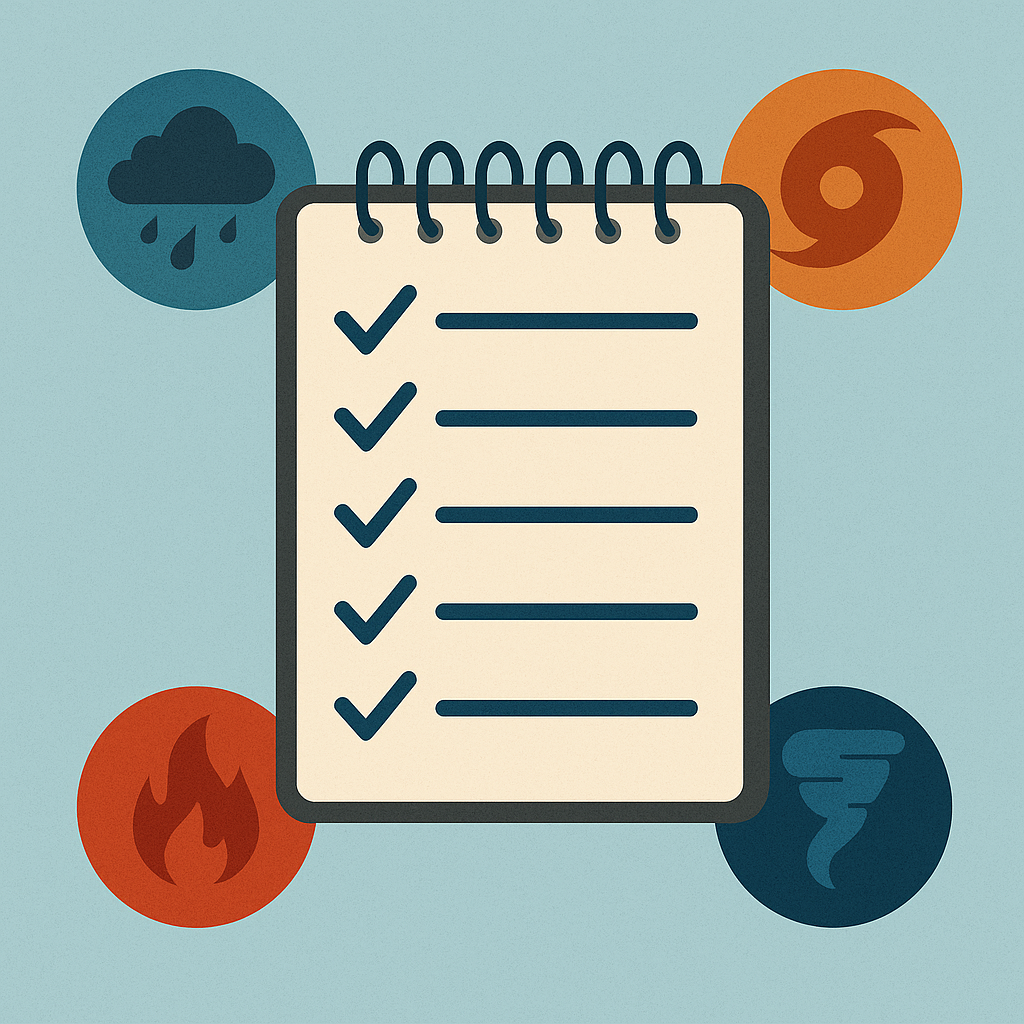🕒 Reading time: 4–5 minutes | Resilience & Readiness Series
Is your nonprofit ready for the unexpected? Disasters — whether natural, technological, or human-made — can strike without warning. For nonprofits, the stakes are especially high. You serve vulnerable populations, depend on limited resources, and play a critical role before, during, and after emergencies.
Yet many organizations don’t begin disaster planning until a crisis occurs. The truth is simple: asking the right questions now can determine whether your organization responds with resilience or faces operational chaos.
Here are the five essential questions every nonprofit must answer to strengthen preparedness, protect critical information, and ensure continuity of services when it matters most.
1. 🌩 What Types of Disasters Are Most Likely to Affect Us?
Not all disasters are the same, and not every organization faces the same risks. Start by identifying which threats are most relevant to your location, mission, and community.
For Houston-area nonprofits, common risks include:
-
Hurricanes and flooding
-
Extreme heat
-
Cybersecurity breaches
-
Localized fires
-
Chemical incidents
-
Infrastructure failures
Consider how these hazards impact your clients.
If you serve seniors, evacuation and mobility challenges must be part of your plan. If you serve families, temporary displacement may require immediate support services.
Understanding your risk profile is the foundation of every effective preparedness strategy.
2. 🤝 What Role Can Our Organization Play During a Disaster?
Every nonprofit has something unique to offer during a crisis — but not all organizations serve in the same way.
Ask yourself:
-
Can we maintain a skeleton crew?
-
Can we support resource distribution?
-
Can we offer shelter, communication assistance, or case management?
-
What services are essential to our mission during an emergency?
Aligning your disaster role with your capacity ensures your organization doesn’t overextend and can respond safely and effectively.
3. 🛟 Do We Have Strong Partnerships in Place?
During a disaster, no organization should operate alone. Collaboration prevents service duplication, closes resource gaps, and strengthens support for vulnerable populations.
Build relationships with:
-
Local emergency management offices
-
County officials
-
VOADs (Volunteer Organizations Active in Disaster)
-
COADs (Community Organizations Active in Disaster)
-
Peer nonprofits and community groups
These networks provide vital coordination and communication during emergencies — and the time to form them is before a crisis.
Volunteer Houston actively collaborates with regional disaster response partners and can help nonprofits plug into these networks.
4. 📣 How Will We Communicate When Systems Fail?
Communication is often the first system to break down during a disaster. Your organization must know:
-
Who is responsible for internal notifications
-
Who controls external communication
-
What to do if cell service or internet fails
-
How to maintain updated contact lists for staff, volunteers, and vendors
Backup methods — such as printed contact sheets, radio communication, or secondary messaging systems — ensure you can stay connected when digital tools go down.
Clear communication protocols save time, reduce confusion, and support rapid response.
5. 🔐 Are Our Critical Documents and Data Protected?
Losing essential documents during a disaster can halt operations for weeks. Protect your organization by securely storing:
-
Articles of incorporation
-
IRS determination letters
-
Donor and volunteer databases
-
Insurance policies
-
Emergency plans
-
Vendor and partner agreements
-
Personnel and volunteer contact lists
Use secure, redundant systems such as encrypted cloud storage and off-site backups. Review your insurance policies regularly to ensure they align with current risks.
🚀 Action Steps to Strengthen Your Preparedness
To build resilience, take these essential steps:
-
Conduct a full risk assessment
-
Form a disaster response team with assigned roles
-
Develop a continuity of operations plan
-
Train staff and volunteers in emergency procedures
-
Schedule annual drills and update your plan regularly
Preparedness is an ongoing commitment — not a one-time project.
🤝 Partner With Experts
Since 1974, Volunteer Houston, a program of IM Houston and the local Points of Light affiliate, has helped nonprofits strengthen their volunteer engagement and disaster response strategies. We can support your organization by connecting you to regional networks, coalitions, and tools designed to build long-term resilience.
Start preparing today so your organization can continue serving your community when it needs you most.
💙 Volunteer Houston
A program of IM Houston | Proud affiliate of Points of Light
🌐 volunteerhouston.org
SEO Meta Title:
Five Critical Questions Every Nonprofit Must Answer for Disaster Preparedness | Volunteer Houston
SEO Meta Description:
Learn the five critical disaster preparedness questions every nonprofit must answer to protect data, strengthen operations, and ensure continuity of services. Discover how Volunteer Houston supports nonprofit resilience across Greater Houston.
SEO Keywords:
nonprofit disaster preparedness Houston, disaster planning nonprofits, continuity of operations nonprofit, Houston emergency readiness, Volunteer Houston disaster support, IM Houston, Points of Light affiliate, nonprofit risk assessment, disaster planning questions, Houston nonprofit resilience
